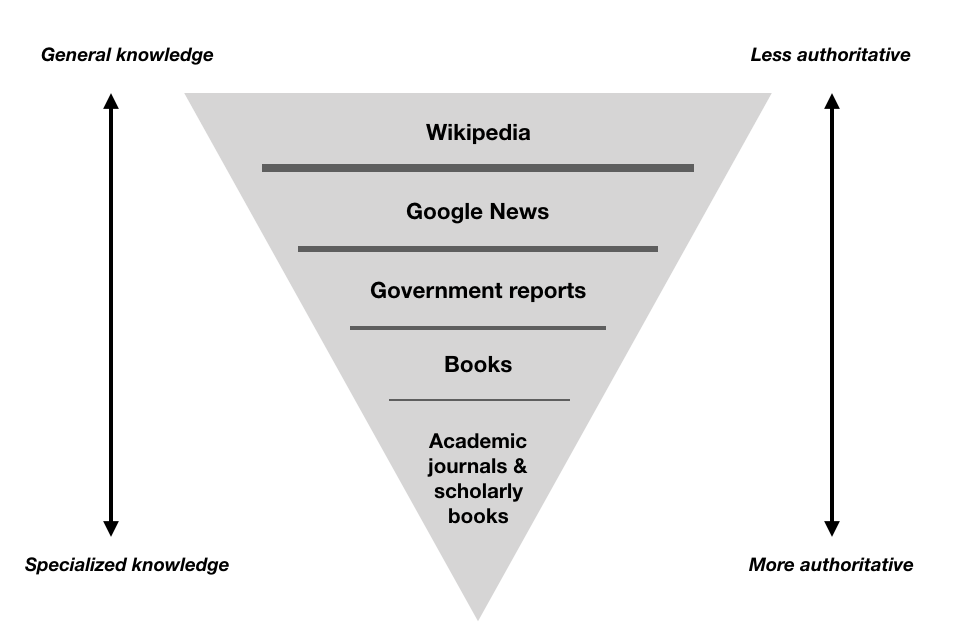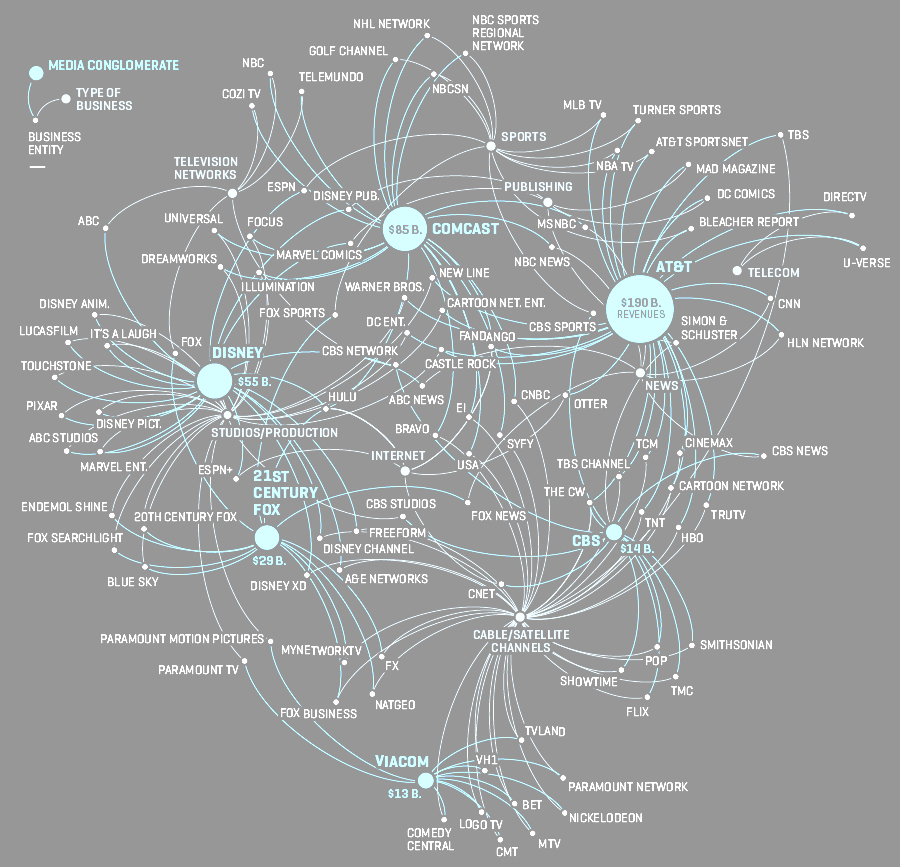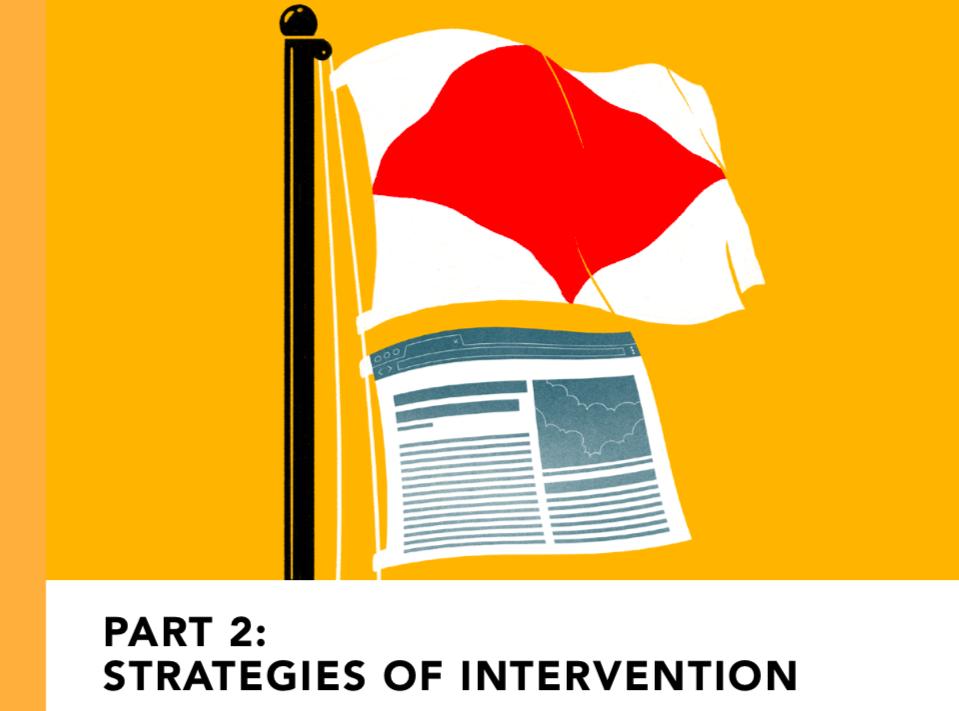In our first unit, you got some experience practicing basic web literacies via fact-checking, researching sites like Snopes, Politifact, and Wikipedia; going upstream for original source material, and assessing credibility by reading sources laterally. Such strategies empower you as a user as you are better able to sort valid information from fake news.
However, as we explored various lenses of post-truth in the second unit, you recognized that although the web literacies from the first unit are important, they are only one small way of dealing with the broader, structural problems that have led us to this moment in history. While you may be more aware or even critical of demagogic tactics, clickbait, conspiracy theories, confirmation bias, and algorithms, the scale of these forces still make you affected by them.
Importantly, however, we need to progress from a cynical skepticism (“the web is useless!”) to a more agentive stance. In other words, we need to ask critical questions that lead to action. Hence, this final unit asks you to do a deeper dive into the strategies stakeholders have developed to deal with the production and spread of fake news, looking into their successes and challenges, and ultimately making an argument for what we can or should do in the future.
Final project: strategies of intervention
In Part I of Data & Society’s “Dead Reckoning” report, which we read during our first week together, you learned that fake news has many different definitions that can be assessed by its intent, types, and features. At the conclusion of this report, the authors emphasize the stakes of fake news:
“Fake news” as a keyword in public discourse offers a proxy view of global techno-politics, where different values guide beliefs about what content should be moderated, who should be responsible, how moderation should be applied to different groups, and what kinds of mental and physical harms are tolerated. “Fake news” is more than a widening of partisanship and the misleading use of social media to spread disinformation; it’s about the social sharing of trust, credibility, and evidence in the making of an informed citizenry.
Conclusion of “Dead Reckoning,” page 27
Thus, while post-truth articulates the general conditions of our current crises in public rhetoric and deliberation, fake news is an important concept for writers as it articulates some of the deep challenges they face when it comes to reading, communicating, and mediating reality. For your final project, then, I want you to write a 1,000-1,200 word essay that explores a specific strategy of intervention, accounting for its chief actors and challenges, but also assesses it via a current or prospective counter-technology — a literacy, tool, or practice that can help users resist, expose, or otherwise ethically mitigate the pernicious forces of fakes news, and ultimately, post-truth. We can start by taking a closer look at the second half of “Dead Reckoning”
Mapping the strategies (and their challenges)
Part 2 of “Dead Reckoning” articulates several strategies of intervention “being offered by industry, government, and NGOs to the broad sphere of problematic content online” (16). Work alone or together to map these on this chart. Once we do, we’ll begin to see some possible places for you to begin your research.
Getting started with your research
For tomorrow’s conference I want you to prepare a 500-word proposal for your final project, that:
- Articulates a specific strategy of intervention you are researching. The narrower the better.
- Finds potential examples or case studies to explore the strategy in action. Here you might use Google News.
- Lists preliminary sources that gets at the strategy’s definition, history, and current status in the news. In addition to using sources listed below, a good start might be to look at the footnotes in “Dead Reckoning.” Find specific sources or look for scholars noted there.
As you research your strategy, you might consider this approach helpful, starting from the top of the pyramid with more general knowledge and working your way down toward academic research as you learn more about it:

Places to start
- Wikipedia to see how your terms are both being discussed today and relate to other terms. For example, if you search “content moderation wikipedia” you’ll likely get to the entry for “Moderation system,” which offer a few different kinds.
- Google News to see how what’s current about your term. If you search commercial content moderation in Google News, you will encounter several recent articles from sources like the New Yorker, The Verge, and Forbes. Not sure a site is authoritative enough? Read laterally to find out.
- Google Scholar and Cornell Library for books and other scholarly materials on the subject. These sources are a bit too specific to explore deeply this early on, but by reading titles and abstracts you will get a sense of what’s out there. You can also find texts footnoted or cited in “Dead Reckoning” this way.
Homework for Wednesday
- Draft your proposal.
Homework for Thursday
- Revise proposal and post to WP.
- Find and skim 3-4 sources for your project.

